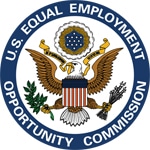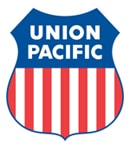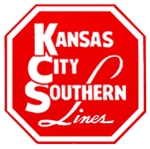The office of Designated Legal Counsel Willard J. Moody, Esq., based in Portsmouth, Va., has extended an offer of service to SMART Transportation Division members who may have been unjustly fired for alleged Family Medical Leave Act (FMLA) violations.
Television station WNYT NewsChannel 13 out of Albany, N.Y., reported in early January that CSX was investigating more than 30 SMART TD members after they took FMLA days over the Christmas holiday.
FMLA, passed in 1993, protects workers’ jobs and allows for unpaid leave from work for medical or family reasons.
Moody said in an email that about 150 CSX employees were taken out of service and targeted for investigation for the alleged violations. Pending the results of the investigation, those workers could lose their jobs.
“We believe that CSX’s handling of these employees may violate federal law. Accordingly, we are contemplating legal action on behalf of these individuals,” Moody said.
Moody said his office is available for a free consultation for workers who have been pulled out of service and are being subjected to adverse action by CSX for alleged abuse of FMLA leave.
“There are limitations on how railroads may treat employees who they believe may have misused FMLA leave, and we believe CSX may have overstepped its legal rights in doing what it has done to employees who are currently out of service,” Moody said.
To contact Moody or Nick Thompson, an attorney with Moody’s firm with experience in FELA and FMLA cases, call 800-368-1033.
Tag: CSX
4th Quarter 2017
Net Earnings: $552 million or $5.33 per diluted share, compared with 2016’s $130 million or $1.21 per diluted share
Revenue: 4th quarter record of $660 million, a 10 percent increase
Operating Income: 4th quarter record of $238 million, a 13 percent increase
Operating Ratio: 64.0 percent, 0.8 point improvement over fourth quarter 2016
2017 Annual Earnings
Net Earnings: $964 million or $9.16 per diluted share, as compared to 2016’s $480 million or $4.43 per diluted share
Revenue: A record $2.6 billion, up 11 percent from 2016
Operating Income: A record $922 million, a 13 percent increase
Operating Ratio: A record 64.3 percent, a 0.6 improvement
Click here to read KCS’s full earnings report
4th Quarter 2017
Net Earnings: Increased by 156 percent to C$2,611 million and diluted earnings per share increased by 164 percent to C$3.48
Revenue: Increased 2 percent to C$3,285 million
Operating Income: Decreased by 7 percent to C$1,301 million
Operating Ratio: 60.4 percent, an increase of 3.8 points
2017 Annual Earnings
Net Earnings: Increased 51 percent to C$5,484 million and diluted earnings per share increased 55 percent to C$7.24
Revenue: Increased 8 percent to C$13,041 million
Operating Income: Increased 5 percent to C$5,558 million
Operating Ratio: 57.4 percent, an increase of 1.5 points
Click here to read CN’s full earnings report
4th Quarter 2017
Net Earnings: Increased 156 percent to a record C$984 million from C$384 million and diluted earnings per share increased by 159 percent to C$6.77 from C$2.61
Revenue: A record 4th quarter with an increase of 5 percent to C$1.71 billion, up from C$1.64 billion
Operating Income: Increased 5 percent to C$753 million
Operating Ratio: A record 56.1 percent, an improvement of 10 basis points
2017 Annual Earnings
Net Earnings: Increase of 50 percent to C$2.4 billion
Revenue: Increased 5 percent to C$6.55 billion from C$6.23 billion
Operating Income: Increased 8 percent to C$2.8 billion from C$2.6 billion
Operating Ratio: Improved 40 basis-points to a record 58.2 percent from 58.6 percent
Click here to read CP’s full earnings report
4th Quarter 2017
Net Earnings: $4.1 billion or $4.62 per share, up from $458 million or $0.49 per share
Revenue: Decreased 6 percent to $2,863 million from $3,037 million
Operating Income: Increased by 12 percent to $1.12 billion from $1.00 billion
Operating Ratio: Improved 6.1 basis points to 60.9 percent from 67.0 percent
2017 Annual Earnings
Net Earnings: Increased 219% to $2.3 billion from $1.02 billion
Revenue: Increased by 3 percent to $11.4 billion, up from $11.07 billion
Operating Income: $3.7 billion, up 8 percent from $3.4 billion
Operating Ratio: 67.9 percent, improvement from 69.4 percent
Click here to read CSX’s full earnings report
4th Quarter 2017
Net Earnings: Increased 17 percent to $3,968 million and diluted earnings per share (EPS) increased 19 percent to $13.79 (adjusted EPS is a record $1.69)
Revenue: Increased 7 percent to $2,669 million from $2,490 million
Operating Income: Increased 13 percent to $1,014 million from $761 million
Operating Ratio: 62.0 percent, improved over 67.7 percent
2017 Annual Earnings
Net Earnings: Increased 15 percent to $5,404 million and increased 18 percent to a record diluted earnings per share of $18.61 (or $6.61 adjusted EPS)
Revenue: Increased 7 percent to $10.6 billion from $9.89 billion
Operating Income: Increased 12 percent to $3,586 million from $3,074 million
Operating Ratio: Improved by 2 percent to a record 67.4 percent from 68.9 percent
Click here to read NS’s full earnings report
4th Quarter 2017
Net Earnings: Increased to $7.3 billion or $9.25 per diluted share as compared to $1.1 billion or $1.39 per diluted share
Revenue: Increased 5 percent to $5.5 billion from $5.2 billion
Operating Income: Increased 4 percent to $2,039 million from $1,965 million
Operating Ratio: Improved 0.6 points to 62.6 percent from 62.0 percent
2017 Annual Earnings
Net Earnings: $10.7 billion or $13.36 earnings per share, from $4.2 billion or $5.07 per diluted share
Revenue: Increased to $21.2 billion from $19.9 billion
Operating Income: $7.8 billion from $7.3 billion, an 8 percent increase
Operating Ratio: Improved 0.5 points to 63 percent from 63.5 percent
Click here to read UP’s full earnings report
Note: Operating ratio is a railroad’s operating expenses expressed as a percentage of operating revenue, and is considered by economists to be the basic measure of carrier profitability. The lower the operating ratio, the more efficient the railroad.
CSX CEO E. Hunter Harrison, 73, has died just two days after CSX announced that he was going on medical leave due to complications from an illness.
CSX’s chairman of the board of directors, Edward J. Kelly III said on behalf of the board: “With the passing of Hunter Harrison, CSX has suffered a major loss. Notwithstanding that loss, the board is confident that Jim Foote, as acting chief executive officer, and the rest of the CSX team will capitalize on the changes that Hunter has made. The board will continue to consider in a deliberative way how best to maximize CSX’s performance over the long term.”
Net Earnings: $459 million or $0.51 per share, up from $455 million or $0.49 per share for the same period last year
Revenue: Increased 1 percent to $2,743 million
Operating Income: Improved 4 percent to $876 million
Operating Ratio: Improved 90 basis points to 68.1 percent
Click here to read CSX’s full earnings report.
Net Earnings: Increased to $130 million or $1.23 per diluted share
Revenue: Increased 9 percent to $657 million
Operating Income: Increased 17 percent to $234 million, a third quarter record
Operating Ratio: Improved 2.5 points to 64.4 percent, a third quarter record
Click here to read KCS’s full earnings report.
Net Earnings: Increased 47 percent to C$510 million or 50 percent to C$3.50 diluted earnings per share
Revenue: Increased 3 percent to C$1.6 billion, up from C$1.55 billion
Operating Income: Increased 5 percent to C$690 million, up from C$657 million
Operating Ratio: Improved 100 basis points to 56.7 percent from 57.7 percent
Click here to read CP’s full earnings report.
Net Earnings: Increased to $1.2 billion or $1.50 per diluted share
Revenue: Up 5 percent from $5.4 billion
Operating Income: Increased 3 percent to $2.0 billion
Operating Ratio: Increased 0.7 points to 62.8 percent
Click here to read UP’s full earnings report.
Net Earnings: Decreased 1 percent to C$958 million, while diluted earnings per share increased 2 percent to C$1.27
Revenue: Increased 7 percent to C$3,221 million
Operating Income: Increased 4 percent to C$1,459 million
Operating Ratio: Increased 1.4 points to 54.7 percent
Click here to read CN’s full earnings report.
Net Earnings: Up 10 percent to $506 million or diluted earnings per share up 13 percent to $1.75
Revenue: Increased 6 percent to $2.7 billion
Operating Income: Up 11 percent to $911 million
Operating Ratio: 65.9 percent, a quarterly record
Click here to read NS’s full earnings report.
Note: Operating ratio is a railroad’s operating expenses expressed as a percentage of operating revenue, and is considered by economists to be the basic measure of carrier profitability. The lower the operating ratio, the more efficient the railroad.
Brother Steven Barber of Local 1346 in Nashville, Tenn., lost his arm during last week’s solar eclipse while working as a foreman. Management was unavailable during the incident at Radnor yard because they were watching the eclipse, delaying emergency treatment to Barber.
The FRA is investigating the incident. No word has been given on the condition of Brother Barber. SMART TD extends their deepest sympathies to Brother Barber and wishes him a speedy recovery.
Click here to read more from Antioch Patch.
Railroad subjected class of female workers to unlawful physical abilities testing, federal agency charges

According to the EEOC’s lawsuit, since at least 2008, CSX has conducted isokinetic strength testing as a requirement for workers to be selected for various jobs. The EEOC said that the strength test, known as the IPCS Biodex, causes a discriminatory impact on female workers seeking jobs as conductor, material handler/clerk, and a number of other job categories. CSX purports to use the IPCS Biodex to measure upper- and lower-body muscle strength. The EEOC charges that female workers who have taken the test pass at significantly lower rates as compared to their male counterparts.
The EEOC also said that CSX has used two other employment tests, one purporting to measure aerobic capacity and one seeking to test arm endurance, as a requirement for selection into certain jobs, and female workers also passed those tests at significantly lower rates as compared to male workers.
According to the EEOC’s complaint, CSX declined to hire a class of women workers for a range of jobs they sought because they failed these tests, and the effect of company testing practices has been to discriminate against women workers because of their sex.
Such alleged conduct violates Title VII of the Civil Rights Act of 1964, which prohibits discrimination based on sex. Title VII prohibits employment practices such as tests that are administered to all applicants and employees regardless of sex but that cause a discriminatory effect or impact on persons of a particular sex. Employers using tests for employment selection purposes that cause a significant discriminatory effect or impact based on sex, or any other covered basis, must prove that those practices are necessary for safe and efficient performance of the specific jobs for which the tests are used. Even if such necessity is proven, such tests are prohibited by Title VII if it is shown that there are alternative practices that can achieve the employers’ objectives but have a less discriminatory effect.
The EEOC filed suit (U.S. EEOC v. CSX Transportation, Inc. Case No. 3:17-cv-03731) in U.S. District Court for the Southern District of West Virginia in Huntington after first attempting to reach a pre-litigation settlement through its administrative conciliation process. The agency’s lawsuit seeks injunctive relief and court-ordered job instatement as well as payment of monetary remedies in the form of past and future lost wages and benefits to the class of female workers adversely affected by CSX’s testing.
“The EEOC has prioritized enforcement actions to eliminate discriminatory barriers to the employment of women and other workers,” said EEOC Regional Attorney Debra M. Lawrence. “Therefore, employers should carefully examine their employment practices, such as tests and other selection procedures, to make certain that those practices are not causing an unlawful disparate impact because of sex or another covered demographic category.”
EEOC District Director Spencer H. Lewis, Jr. added, “The EEOC will take vigorous action if an employer’s selection procedure has an adverse impact on women or members of any other demographic group. Companies must refrain from using a test causing adverse impact unless it is job-related and consistent with business necessity. Even if a test passes that standard, an employer must adopt any comparably effective alternative practices that have less adverse impact.”
Eliminating barriers in recruitment and hiring, especially class-based recruitment and hiring practices that discriminate against racial, ethnic and religious groups, older workers, women, and people with disabilities, is one of six national priorities identified by the Commission’s Strategic Enforcement Plan.
The lawsuit was commenced by the EEOC’s Pittsburgh Area Office, one of four component offices of the agency’s Philadelphia District Office. The Philadelphia District Office has jurisdiction over Pennsylvania, Maryland, Delaware, West Virginia and parts of New Jersey and Ohio. Attorneys in the Philadelphia District Office also prosecute discrimination cases in Washington, D.C. and parts of Virginia.
According to company information, CSX Corporation, together with its subsidiaries based in Jacksonville, Fla., is one of the nation’s leading transportation suppliers, encompassing about 21,000 route miles of track in 23 states, the District of Columbia and the Canadian provinces of Ontario and Quebec.
The EEOC advances opportunity in the workplace by enforcing federal laws prohibiting employment discrimination. More information is available at www.eeoc.gov.
Reuters posted on August 1, 2017, that in an email last week to his customers, CSX CEO Hunter Harrison addressed service delays and disruptions by placing blame squarely on his employees, stating that they have been “resistant to change.”
John Risch, SMART TD national legislative director, refuted that claim and outlined the main cause of the service disruptions: Hunter Harrison.

John Risch, a spokesman for the transportation division of the SMART Union, which represents CSX operations employees, said “significant delays” had been caused by Harrison’s changes, such as doubling the size of trains and shutting down hump yards where a freight train’s cars are separated onto different tracks.
“No one is more to blame for CSX’s service disruptions than the man who ordered the dramatic changes to operations and that’s Hunter Harrison,” Risch said by email.
Read the complete article here.
CSX

Revenue: Increased 8 percent to $2,933 million
Operating Income: $958 million, up 14 percent
Operating Ratio: 67.4 percent, down from 68.9 percent
Click here to read CSX’s full earnings report.
KCS
Net Earnings: $135 million or $1.27 per diluted share, up from 2016 second quarter’s reported $121 million or $1.11 per diluted share
Revenue: Record second quarter revenues of $656 million, a 15 percent increase from the second quarter of 2016
Operating Income: All-time record of $239 million, an increase of 9 percent from the second quarter of 2016
Operating Ratio: 63.5 percent, a 2.2 increase from second quarter 2016
Click here to read KCS’s full earnings report.
CP
Net Earnings: Rose 46 percent to C$480 million or C$3.27 per diluted share (a second 
Revenue: C$1.64 billion, up 13 percent
Operating Income: A second-quarter record of C$679 million, up 23 percent
Operating Ratio: Improved 330 basis points to a second quarter record of 58.7 percent
Click here to read CP’s full earnings report.
UP
Net Earnings: $1.2 billion or $1.45 per diluted share (a second quarter record), as 
Revenue: Up 10 percent to $5.3 billion
Operating Income: Up 21 percent to $2.0 billion
Operating Ratio: A second quarter record of 61.8 percent, a 3.4 point improvement compared to the second quarter 2016
Click here to read UP’s full earnings report.
CN

Net Earnings: Increased 20 percent to C$1,031 million and diluted earnings per share increased 24 percent to C$1.36
Revenue: Increased 17 percent to a quarterly record of C$3,329 million
Operating Income: Increased 16 percent to C$1,495 million
Operating Ratio: Increased 0.6 points to 55.1 percent
Click here to read CN’s full earnings report.
NS
Net Earnings: Up 23 percent to $497 million while diluted earnings per share increased 26 percent to $1.71
Revenue: Increased 7 percent to $2.6 billion
Operating Income: Up 15 percent year-over-year to $888 million
Operating Ratio: An all-time record at 66.3 percent
Click here to read NS’s full earnings report.
Note: Operating ratio is a railroad’s operating expenses expressed as a percentage of operating revenue, and is considered by economists to be the basic measure of carrier profitability. The lower the operating ratio, the more efficient the railroad.


